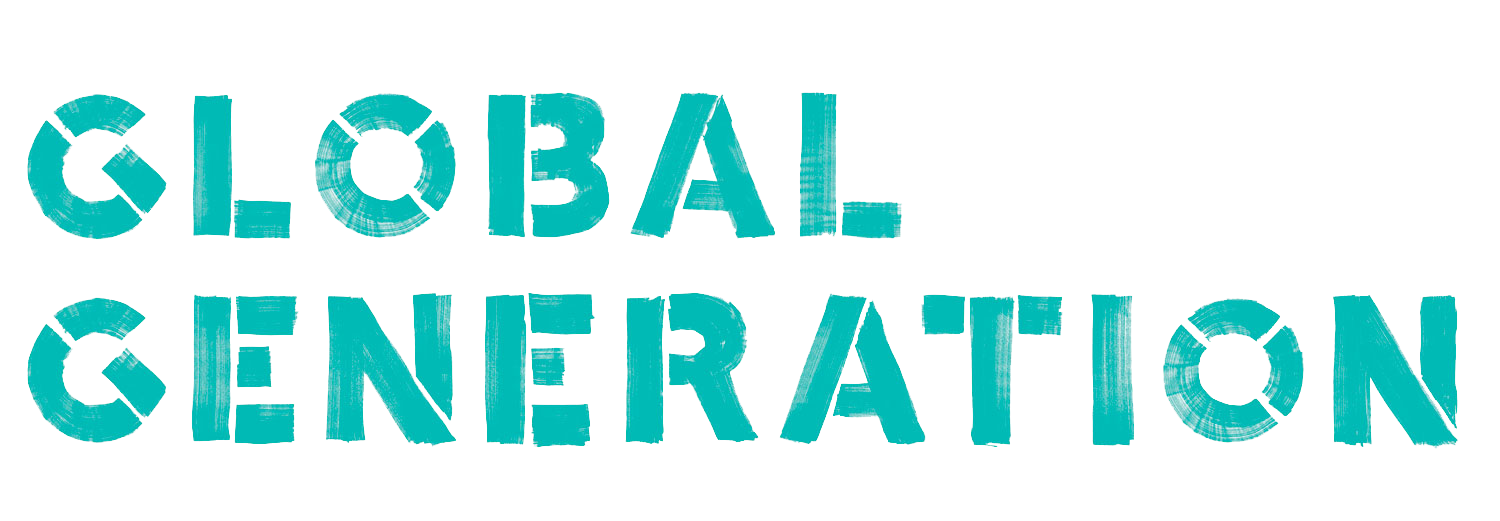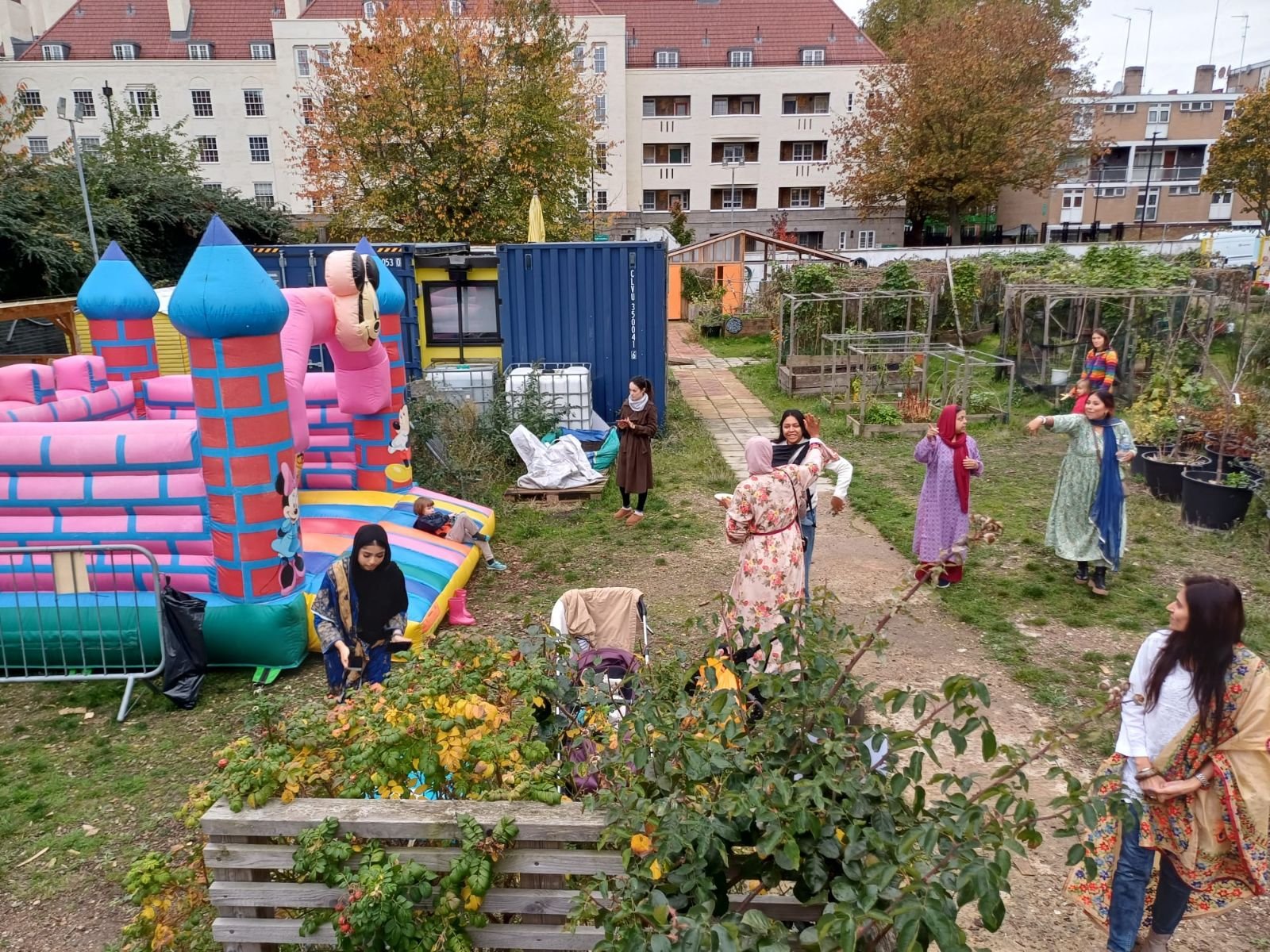Bumps, Wrinkles and Breakthroughs
Words by Jane Riddiford and Nicole van den Eijnde
Sitting on the other side of the world in Aotearoa New Zealand, where I now live, I received a piece of ‘looking back, looking forward writing from Nicole’ . It was a response to the idea that we might co-write a blog post in recognition of Global Generation’s 20 year history. Nicole began the writing and when her first draft arrived with me, it happened to be the Māori New Year, based on the rising of the star cluster known in this part of the world as Matariki and in other places as the pleiades, the seven sisters, subaru and many other names. Matariki is a time for looking back and feeling grateful for what has happened. Nicole had written about turning her attention to GG’s roots and the strong vision with which Global Generation was set up by founding members Paul Aiken, Sara Riley and me (Jane Riddiford) . The central aim was to give young people opportunities to connect to nature and empower them to play a part in creating a just and life sustaining world. I thought about how Nicole is now an elder of GG and with that came gratitude for the way she has shaped GG’s work over the last 15 of our 20 years. Her steady hand and huge sense of social justice brought many of my half baked ideas and inclinations to fruition and somehow the collaboration between the two of us brought out far more than perhaps either of us could have imagined.
By the time Nicole joined us in 2010 I had already embarked on an action research journey, which brought an inquiring and appreciative lens to all the gritty bumps and wrinkles we encountered in the leadership of growing a small organisation. She had also been involved in action research and had a particular interest in a participatory approach inspired by the Brazilian activist, Paulo Freire who wrote the Pedagogy of the Oppressed. Hence Nicole and I came together in a strong belief that building community is a powerful way to affect social change. Finding excuses to come together have been at the heart of pretty much all of GG’s practice, whether that be building structures, eating and growing food together, reflecting, writing and making sense of the world together or simply sitting around fires and telling stories together. There’s no doubt that the whole is definitely greater than the sum of the parts; connecting with others brought a wealth of skills, ideas and opportunities that we might not otherwise have encountered. At times our way of doing things may have seemed unorthodox and for ourselves it wasn’t always a comfortable approach. As our projects grew our relational, emergent style of running an organisation was unnerving for some, at least for those who were used to a more obvious, singular line of command. On one occasion, I heard a board member say; “it’s all very well these fluffy ways of doing things but now we have to operate like a real business.” As fevers ran high, and paradigms clashed I appreciated Nicole’s pragmatic, down to earth, inquiring approach. Along with our seemingly fluffy ways of doing things fortunately neither of us were afraid of numbers and spreadsheets and despite plenty of financial uncertainty and more than a few sleepless nights we always managed to find a way through without putting GG into debt.
As Nicole described, “GG has been on quite a journey, moving spaces every few years, re-building and re-inventing each garden, providing opportunities for learning, growth and new friendships, but also navigating the uncertainty as short leases came to an end and the need arose to uproot once again. Our core gardens came in different shapes; three Skip Gardens, a Hoop Garden, two Paper Gardens, one Floating Garden and one Story Garden, as well as a further 50 co-created gardens in the public realm, on rooftops, in schools and businesses.”
That’s an almost exhausting list, much of it made possible by the open mindedness and readiness to accept risk on small but valuable pockets of land, by Roger Madelin and the associated Argent and British Land teams. I should also add that in the doing of it, Nicole and I and others in the team didn’t always agree, and that’s why finding ways through was all the more rewarding. One thing we could rely on, was that each time we encountered uncertainty, whether that be how to approach the enormous task of moving and re-creating our temporary gardens, or how to navigate the Covid pandemic, we knew we needed to create the conditions for a collaborative, travel hopefully approach and then the music happened.
The tools of participatory action research, such as creating imaginative and safe spaces, free fall writing and values based discussion helped us take time to reflect, to get to know people on a deeper level and to build trust. Sitting in circles and diving deep happened not only amongst the team or with young people but pretty much with everyone we encountered, sometimes to their surprise. Working with the community alongside local construction contractors in a participatory way, involving all ages and levels of experience was about far more than building gardens or saving money. It provided excuses for people who normally wouldn’t come together to get to know one another. The building of the first Skip Garden opposite St Pancras Station was created with the hands on involvement of all of the five construction contractors in King’s Cross, 25 primary and secondary school students, women from a hostel for young homeless and the senior leadership team of the Guardian Newspaper. One of our younger participants summed the experience up well when he wrote;
“ Not only did we create a garden, we created a living atmosphere.”
- Zakariya Sharif Nur, Generator
Nicole highlighted something I think we can all relate to. That sense of overwhelm and paralysis in the face of mounting conflicts between people and the destruction of our planet. Sometimes it can seem impossible to imagine that a different way is possible. In terms of a way forward Nicole referred to a quote by a civil rights activist committed to radical non-violence, which echoes Zakariya’s words and speaks to why Global Generation has always been a people based organisation.
“Ask what makes you come alive, and go do it. Because what the world needs is people who have come alive.”
- Howard Thurman
Matariki is also a time for looking forward and embracing new possibilities. GG has just signed, what in the early days of our peripatetic existence would have been inconceivable, a thousand year lease, for our very first permanent garden in the middle of King’s Cross. Such a long lease, at a peppercorn rent, in one of the most densely populated areas of London, where land is hard to come by, is a landmark for Global Generation and London; opening a pathway of what could happen in cities in a climate changing world.
Now with a staff team of more than twenty, including young people who have been through our programmes, a strong board and a diverse range of partners, it is a good starter for ten in terms of ensuring that the little pocket of land we have been granted in the middle of the city is earmarked as a habitat area and educational space for generations to come.
We both feel it has been a privilege and a joy to have played our part in Global Generation’s journey so far and it is only just the beginning. Whist I am still involved in a low key way with GG , me and my husband Rod Sugden, have brought many of the practices developed through our time with GG, including a thousand year vision, to Ruamahanga Farm Foundation, a community oriented wetland restoration project in the Wairarapa, a rural valley about an hour from Wellington in New Zealand. For Nicole and the GG team they are applying all the learnings from the past 20 years to the creation of the new permanent site. It will be a co-created space implemented through a circular economy approach using upcycled materials and traditional craft. This means young people will be at the heart of the build, many of them supported through a funded trainee programme. Young people will also document the whole process and curate a permanent exhibition on site to bring alive and celebrate otherwise hidden voices and otherwise hidden ways of growing community that help make the seemingly impossible, just a little more possible.
For all of us it has been a blessing to work alongside young people. They have kept the work honest in terms of the responsibility to model positive ways of being which in itself has provided a moral compass. Time and time again they have astounded us by their creativity and the simple and evocative ways they have described what GG’s work is about. Here is a film in honour of the last 20 years, with a narrative written and spoken by one of the young people who has been involved with us, produced by our colleague Silvia Pedretti and her partner Alex Carulli. For a long time I have said, vision is what grows in the footsteps of shared commitment and I think the film is a testament to that. (Voiceover provided by Samika Barclay and Hannaan Abdalla).








Meet our second cohort of earth build trainees! Their focus has been on all things wood, including green woodworking and the timber construction of the kitchen. They have learned on the job, while working on our sustainable natural build construction project to create our first permanent community garden, at the #TriangleSite.